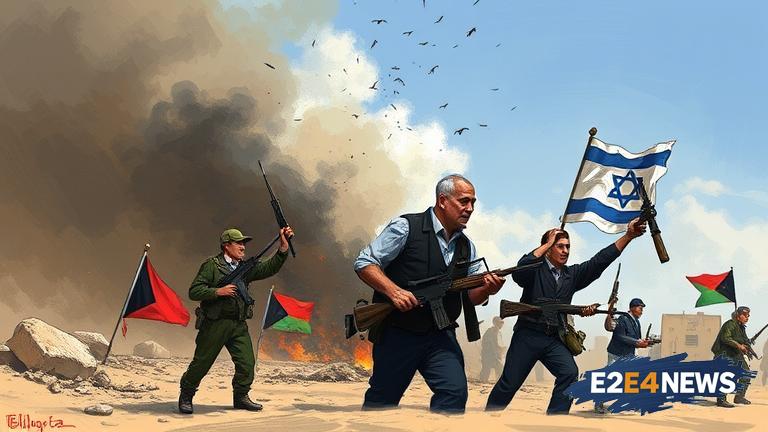The Israeli government has announced that it is exploring alternative options to the current ceasefire talks with Hamas, citing deepening uncertainty and concerns over the group’s commitment to a lasting peace. This development comes amidst a backdrop of heightened tensions and sporadic violence in the region. The Israeli authorities have expressed skepticism about Hamas’s intentions, pointing to the group’s history of aggression and its refusal to recognize Israel’s right to exist. As a result, Israel is seeking to diversify its diplomatic efforts and engage with other regional stakeholders to forge a more comprehensive and sustainable peace agreement. The move is seen as a response to the perceived shortcomings of the current ceasefire framework, which has been criticized for being overly narrow and failing to address the underlying issues driving the conflict. Israeli officials have emphasized the need for a more robust security framework, one that would prevent Hamas from rearming and rebuilding its military capabilities. The search for alternative approaches has sparked a mix of reactions, with some hailing it as a necessary step towards a more durable peace and others warning of the risks of escalating tensions. The international community has urged caution, calling on all parties to remain committed to the ceasefire and to avoid actions that could undermine the fragile peace. Despite these concerns, Israel remains resolute in its pursuit of a more secure and stable environment, one that would allow for the resumption of normal life and the rebuilding of damaged infrastructure. The situation on the ground remains volatile, with reports of intermittent clashes and exchanges of fire between Israeli forces and Hamas militants. The humanitarian situation is also a major concern, with thousands of civilians caught in the crossfire and struggling to access basic necessities like food, water, and medical care. The Israeli government has pledged to continue providing humanitarian assistance to those in need, while also working to strengthen its military presence in the region. The prospect of alternative approaches to the ceasefire talks has raised questions about the role of other regional players, including Egypt, the United Arab Emirates, and Qatar. These countries have been involved in various capacities in the peace process, and their continued engagement will be crucial in shaping the trajectory of the conflict. The United States has also been a key player, providing diplomatic support and financial assistance to the Israeli government. As the situation continues to unfold, all eyes will be on the Israeli government’s next move, with many wondering whether the pursuit of alternative approaches will lead to a breakthrough or a breakdown in the peace process. The coming days and weeks will be critical in determining the outcome, with the international community holding its breath as it waits to see how the situation will evolve. In the meantime, the people of Israel and Gaza remain caught in the middle, struggling to cope with the uncertainty and insecurity that has become a hallmark of life in the region. The need for a lasting and comprehensive peace agreement has never been more pressing, and it remains to be seen whether the current efforts will ultimately bear fruit. The Israeli government’s decision to explore alternative approaches to the ceasefire talks has significant implications for the region, and it will be important to monitor the situation closely in the coming days and weeks. The potential for escalation is ever-present, and it will require careful diplomacy and a commitment to peace from all parties to avoid a further deterioration of the situation. As the world watches, the people of Israel and Gaza can only hope that a lasting peace will eventually be achieved, one that will bring an end to the violence and allow for the rebuilding of their shattered communities.





